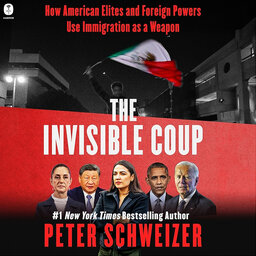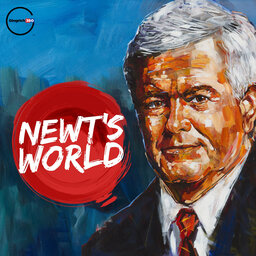Episode 727: The Shadow of War
In 1961, President John F. Kennedy inherited an ill-conceived, poorly executed invasion of Cuba that failed miserably and set in motion the events that put the U.S. and the Soviet Union on a collision course that nearly started a war that would have enveloped much of the world. Newt talks with best-selling author Jeff Shaara about his new book, "The Shadow of War," which focuses on the Cuban Missile Crisis. Shaara explains his approach to writing historical novels, emphasizing the importance of character development and extensive research. He also discusses the potential consequences of a nuclear war, highlighting the devastating impact it could have on all of civilization.
In 1 playlist(s)
Newt's World
Join former House Speaker, professor, historian, and futurist Newt Gingrich as he shares his lifetim…Social links
Follow podcast
Recent clips

Episode 948: ‘Moneyball’ for Politics
30:34

Episode 947: Will AI Take My Job
28:22

Episode 946: Peter Schweizer on “The Invisible Coup”
34:50
 Newt's World
Newt's World